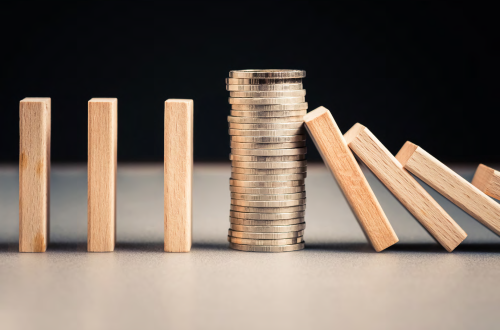The financial health of Chinese SOEs and corporates

Monthly House View - March 2020 - Download an excerpt here
The Chinese government’s actions
On the 22nd of February 2020 the People’s Bank of China offered CNY 200 billion (USD 29 billion) in one-year loans at a rate 10 basis points below the previous offer and at 3.15% it is now the lowest since 2017. Beijing has given a green light to provincial-level governments to issue a further CNY 290 billion (USD 42 billion) of special-purpose bonds early, adding to the RMB 1 trillion of such debt approved in November to boost infrastructure spending amid a slowing economy that is set to take an additional hit from the coronavirus (COVID-19) epidemic. Special-purpose bonds are recourse debts and contain payment guarantees from the local governments.
Fears of more local government and SOE (state-owned enterprise) defaults
On the downside, the higher debt at the local government level could magnify their vulnerability. The central government is clear that it will not bail out local government debts but leave market forces to address debt restructurings to reduce moral hazards especially amongst non-strategic SOEs. Between 2016 to present, SOE defaults accounted for only 6% of total Chinese corporate defaults in the offshore market or 19% of combined Chinese onshore and offshore corporate defaults. The offshore Chinese bond market refers to those issued outside mainland China in which foreign and Chinese investors can invest and trade bonds easily, and where our focus is.
Financial health check of rated Chinese property developers
Corporate bonds issued by Chinese property developers account for around half of all Chinese high-yield bonds, but property developers’ historical default rates are indeed significantly lower than that of the energy and industrial sectors, thanks to the rising value of their land-bank reserve over time and their ability for timely asset disposals to shore up liquidity when needed.
Regulatory support for property developers
Given the sizable contribution of the property market directly and indirectly to the country’s GDP (estimated to be around 7% and 20-25% respectively), the National Development Reform Commission (NDRC) recently allowed developers with an existing offshore bond issuance quota to extend their quota expiry date by six months so as to give developers more breathing room in their bond issuance plans which are being disrupted by the coronavirus (COVID-19) outbreak. The recent Politburo meeting pledged to assess further tax relief measures and keep monetary policy flexible to provide financial support for the most affected regions and private sectors.
Impact on the Chinese aviation industry
Another sector which is exposed to the impacts stemming of the coronavirus (COVID-19) is the airlines. Two-thirds of China’s passenger planes have been grounded as travel restrictions and fears sparked by the outbreak of the virus have hit passenger numbers sharply.
Whilst the largest carriers (Air China, China Eastern Airlines and China Southern Airlines) will be able to navigate the choppy environment, smaller and more indebted airlines will be vulnerable should the virus continue to spread. Chinese cities and provinces own stakes in about 20 regional airlines and it is expected that the authorities will bail out local airlines through cash infusions, loan repayment waivers or more favourable aircraft leasing terms should they run into difficulties. However, this could place additional financial pressure on local governments that are already struggling to deleverage.
Conclusion
We believe that the magnitude of government stimulus to specific regions and sectors will depend on the duration of the disruption. Avoiding moral hazard and a sharp surge in defaults remain high on Beijing’s agenda.
The normalisation of some sectors (such as property) is likely to occur earlier than others, notably tourism. Beyond China, neighbouring countries including Thailand, South Korea, and Singapore, have quickly responded with new tax benefits and financial support for corporates affected by the outbreak in order to mitigate the spill-over effect on supply chains.
Monthly House View, 22/02/2020 release - Excerpt of the Focus
February 22, 2020




